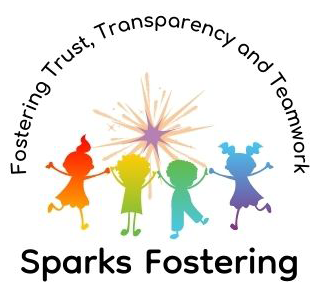Allowances and fees for kinship fostering and private fostering arrangements
The differences between ‘mainstream’ foster care, kinship fostering/connected carers, and private fostering
Kinship carers have a prior relationship with the child and are assessed by social care to be suitable carers. Kinship carers are usually family members, but they may also be close friends of the family or known to the child in another capacity. Kinship carers are often referred to as ‘connected carers’.
Private fostering arrangements are when a child is cared for by a non-family member (i.e. not the grandparent, brother, sister, aunt or step-parent) continuously for 28 days or more. Private fostering arrangements are made without the involvement of social care; however, it’s a legal requirement that the local authority is notified of such arrangements so that social workers can check the welfare of the child.
Private fostering arrangements can sometimes be confused with private fostering agencies – private fostering agencies are independent (i.e. not local authority) fostering services that provide support to mainstream fostering placements. ‘Mainstream’ foster carers (usually referred to as simply ‘foster carers’) are registered with a fostering provider (such as Sparks Fostering) and are available to care for children who are referred to the fostering service by the local authority children’s services team. Unlike kinship and private foster carers who only look after specific children, mainstream carers may care for any children who match the carer’s approval range. There is more information about mainstream fostering on the Sparks Fostering website (see www.SparksFostering.org) and information about mainstream fostering fees can be found on the Sparks Fostering allowances page.
Fees for kinship carers
Kinship carers may eligible for benefits such as Universal Credit, Child Benefit, Pension Credit, Guardian’s Allowance, Disability Living Allowance or other Cost of living support.
Kinship carers may receive a fee from the local authority, and this varies from area to area. Some local authorities don’t give any fees to kinship carers, and some do. Also, in addition to a weekly fee, some local authorities may provide allowances, for example for holidays and birthdays.
Kinship carers can ask their social worker if there is a set payment for kinship carers (which is usually dependent on the age of the child), or if fees are arranged on a case-by-case basis. Where fees are provided, carers should ask for confirmation about whether the fees are likely to be subject to review. In some cases, the local authority may withdraw support after some time, or after a review of support needs.
When planning their finances, carers should also consider the rate of inflation and check whether their fees would be adjusted accordingly.
If kinship carers wish to check how much the local authority typically gives in fees and allowances to kinship carers, they may wish to submit a Freedom of Information request. The request should specify the age of the children.
Fees for private fostering arrangements
Private fostering carers who are caring for the child long term may be eligible for benefits such as Universal Credit, Child Benefit, Pension Credit, Guardian’s Allowance, Disability Living Allowance or other Cost of living support. Private fostering carers should review the benefits that are available for the child’s care, especially if the parents aren’t transferring benefits payments to the carers.
Social care doesn’t usually provide any fees for private fostering arrangements unless there are assessed and specific needs for the child.
Other support available
Fostering providers may also be able to provide social work support and supervision, training, support groups, referral to specialists, access to support groups, and support with respite/short breaks carers. Each local authority (and/or private fostering providers for mainstream fostering) has different provision and different offers so specific information should be requested from each provider.






